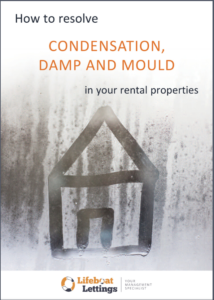

The legislation introduced on 1st June 2019 as the Tenant Fees Act forbids landlords and agents to charge tenants any fees or costs associated with the tenancy, other than the rent and deposit. Lettings agents cannot charge any admin and agency fees, which include costs for tenant referencing and inventories. The new law also reduced the amount of deposit the agents can hold, from six weeks to a maximum of five weeks rent.
With the legislation having been in force now for two months, we thought we would review the impact so far on the industry – as far as it is visible, on our own business and give our opinion of the merits of the legislation and predictions for it’s future impact. Here are our thoughts on the tenant fee ban.
Forcing those who benefit from the tenancy to cover it’s costs?
The original purpose of the legislation was largely two fold. Firstly, it was aimed at preventing rogue agents and landlords from continuing to charge extortionate fees to tenants. Second it was aimed at reducing costs for tenants associated with both the ongoing tenancy and – in particularly – moving.
We feel there was also a premise or belief in the background (written or otherwise) that it is the landlord who benefits financially from the tenancy who should foot the bill for any costs associated with it.
But a tenancy is of course a partnership, with the landlord providing a service to the tenant in exchange for payment, and being expected – and permitted one hopes – to make a profit for their time and trouble. The agent as the interface with the tenant and tenancy, manages this process – an additional service with associated costs – and also has to make a profit. Without a landlord and a lettings agent there would be no tenancy or indeed property to rent.
What have the impacts been so far?
It is still early to say what the overall impact of the legislation will be on the rental market. There have however been some early casualties in the high street agency market. It is fair to assume that those agencies that relied too heavily on the additional fees structure will – and already have in some instances – been the first casualties. At Lifeboat Lettings we had a very minimal fee structure as the company was set up in anticipation of this legislation. We only charged applicants what we felt was right to cover the costs of referencing in particular. We expect there will now be a period of consolidation where smaller agencies heavily reliant on fees will be absorbed by larger companies.
Another obvious impact of the legislation will be to provide another barrier to entry for new agencies or semi-professional individuals into the market. This is both good and bad, as it will undoubtedly deter potential rogue agencies but it will also limit choice for both landlords and tenants.
The impact on landlords is even more difficult to determine at this early stage. Landlords have been under attack from continued government regulation and legislation for a long time now and for many this could be the final nail in the coffin. Landlords have also been historically slow to react to cost burdens in particular, tending to absorb costs up to a point, before passing them on or deciding to exit the market.
So, what are our thoughts on the tenant fee ban and what does the future hold?
Generally speaking we welcome any effort to clean up our industry. But as with any new legislation there is always two sides to the story and often unexpected or unpublished impacts.
One thing that hasn’t been widely discussed or acknowledge is that there are very visible and increasing costs now associated with letting out and managing residential property. This is an inevitable and obvious consequence of many years of increasing legislation of the property rental market.
Ultimately these costs have to find a home, and with any product or service it is the end user who ends up paying, whether this be servicing your car or buying produce at the supermarket. We think there will be a continued period of consolidation of the lettings agency market, coupled with a drive for efficiency in systems. However, not all of the cost associated with setting up and managing a tenancy will be absorbed within the lettings industry and this will have to be passed on.
As an agency, we have taken the decision not to increase our management fees we charge to landlords for the time being, but we know that many agents are increasing their fees.
Landlords will be able to absorb some but not all of this cost and ultimately since this fair share of costs can no longer be passed to tenants in the form of fees, we feel that there will be an inevitable upwards pressure on rents as these increased costs are reflected in the price of the end product. There will also be an additional pressure on rental prices because of the gradual but continued reduction in the number of available properties as landlords exit the market as a combined consequence of this and previous legislation.
So those are our initial thoughts on the tenant fee ban. Whatever happens, we are certainly entering interesting times and we will continue to keep you posted on developments




